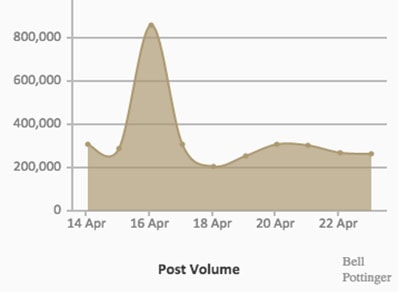 The idea that 2015 is going to the UK’s first social media election is much exaggerated. Many of the lessons from the 2012 US election campaign have not been adopted. The political parties have played safe in using Twitter and blogs as an additional channel rather than a means to break news or lead debates.
The idea that 2015 is going to the UK’s first social media election is much exaggerated. Many of the lessons from the 2012 US election campaign have not been adopted. The political parties have played safe in using Twitter and blogs as an additional channel rather than a means to break news or lead debates.
Yet, the potential power of the second screens (using smart phones, iPads and the like during debates to provide real-time comment), especially during televised debates, has been much underestimated.
There has been some criticism of over staged Twitter responses where pre-prepared replies are posted simultaneously with no regard to the “real-time” conversation. Prospective candidates who use Twitter on a local and personal level are likely to meet the need for credibility and authenticity that the Obama team always stressed.
The most popular social media of the campaign so far – being an amateur mash-up of Ed Miliband “calling out” David Cameron. Shortly behind, a teacher suggests grammar and spelling corrections for a less-than-impressive election flyer.
The unofficial, “Milifandom“, has helped attract a new younger audience into the 2015 campaign. But it is far too early to be certain they will guarantee a significant up-tick in youth votes.
Some political scientists have emphasised the importance of securing volume. Since the dissolution of parliament the SNP has enjoyed more account mentions than any other party. But, it is UKIP, whose polling’s have fared less well, which is master of the hashtag.
|
Party |
Account mentions |
# mentions |
|
UKIP |
120,000 |
410,000 |
|
Labour |
140,000 |
130,000 |
|
SNP |
190,000 |
230,000 |
|
Conservative |
81,000 |
75,000 |
|
Liberal Democrats |
77,000 |
49,000 |
Source: Bell Pottinger
Other strategists highlight the need to use social media to reinforce key messages. In UK campaigns the main usage of Twitter has been reactive, responding rather than leading debates.
Research from Bell Pottinger and Crimson Hexagon, looking at more than 7 million tweets and blog posts, has highlighted just one occasion so far when we can see that social media has made a real difference.
On 16 April we saw the highest level of social media traffic during this campaign.

There were 860,000 posts, the majority between 7pm and 9pm when the opposition debate aired. The reason why this “Super-Social Thursday” was important was because it led to genuine shifts in sentiment toward the parties. On that day the negative rating for every major party fell. Perhaps not taking part was a tactical error for David Cameron.
However there is a chance for him to redeem himself on 30 April when Question Time will host a session with Clegg, Miliband and Cameron. It will be the most important social media day of the campaign; perhaps the most important day in the 2015 election – a second “Super-Social Thursday“. And it will be second screens that will be vital in helping shape sentiment toward the political leaders.
But our leaders should remember the harsh reality that it will be the Tweeters rather than the voters who will give the first impressions, good or bad, on their performance.
Written by Kevin Read, executive chairman, corporate, brand, digital and design at PR firm Bell Pottinger.
If you enjoyed this article, sign up for free to our twice weekly editorial alert.
We have six email alerts in total - covering ESG, internal comms, PR jobs and events. Enter your email address below to find out more:








